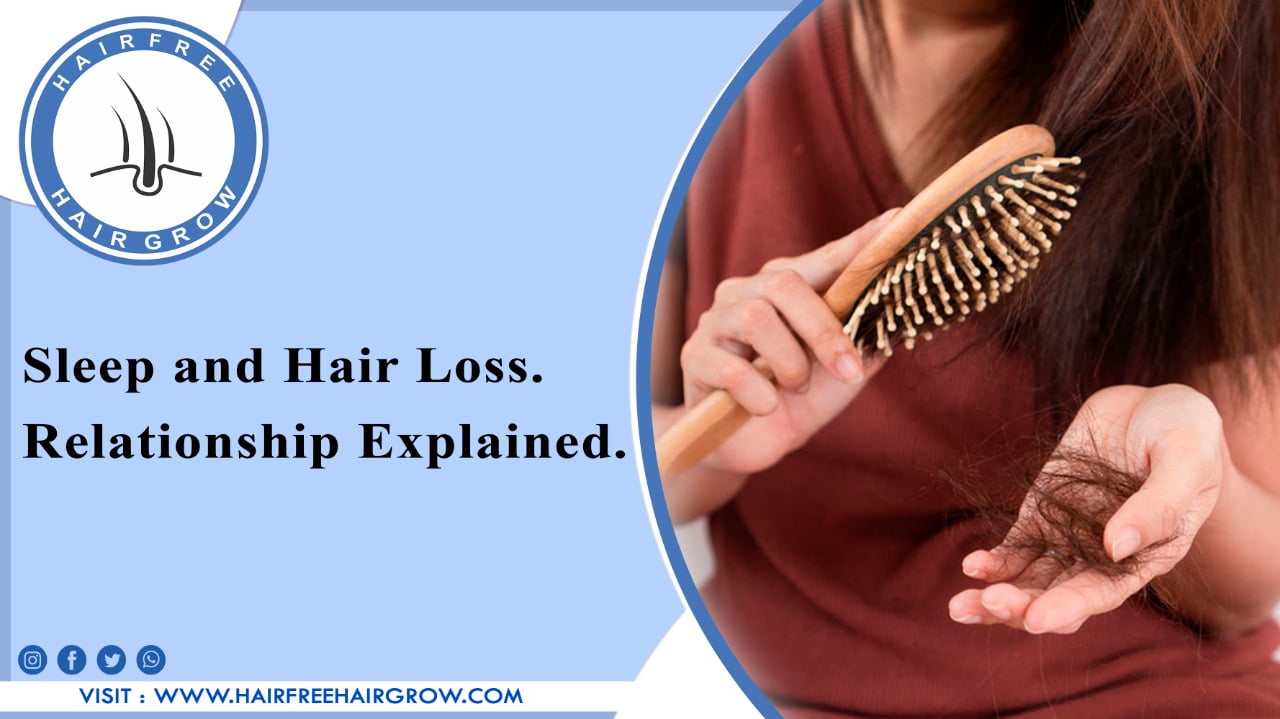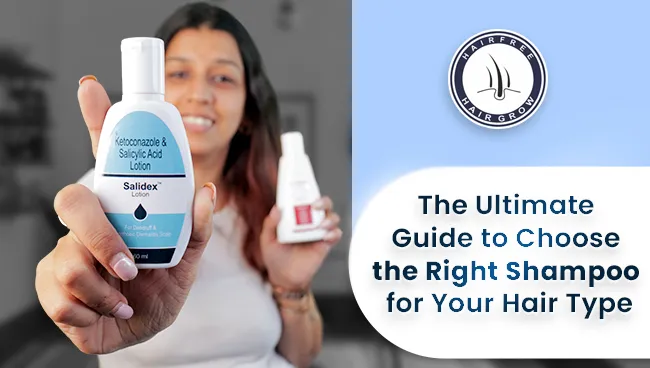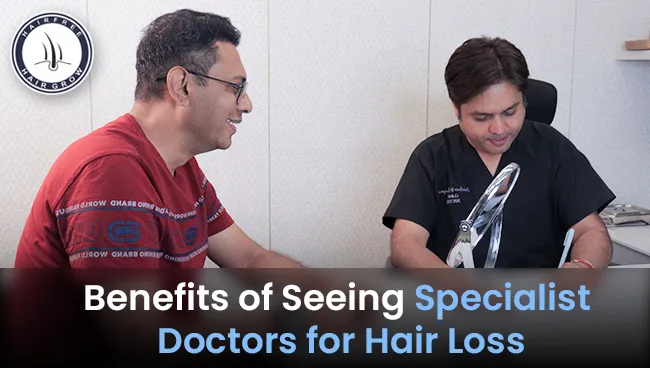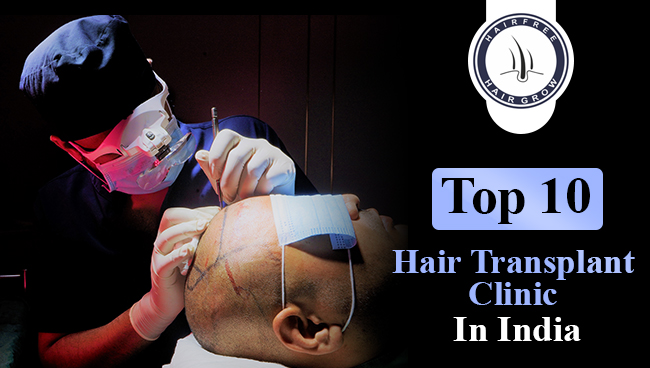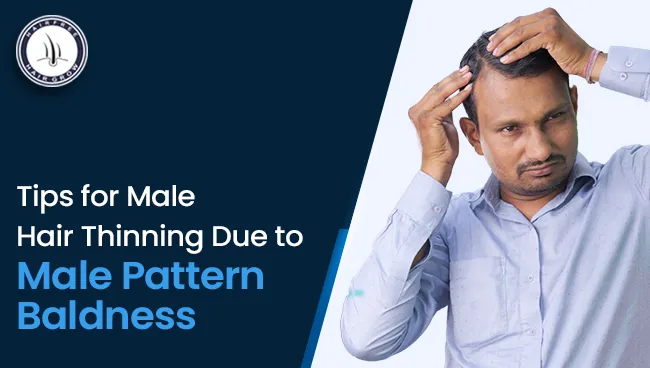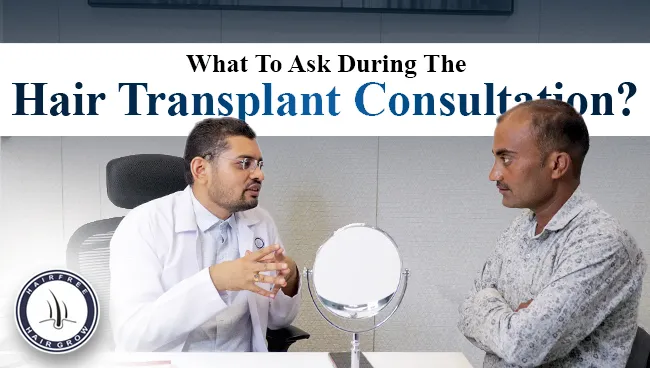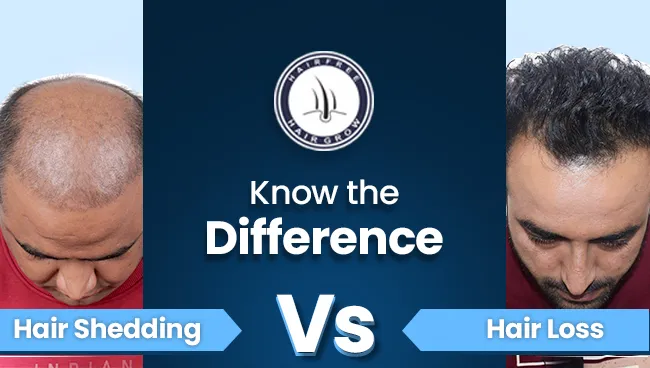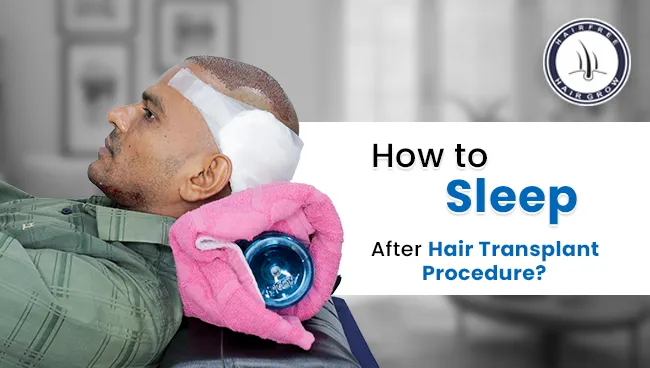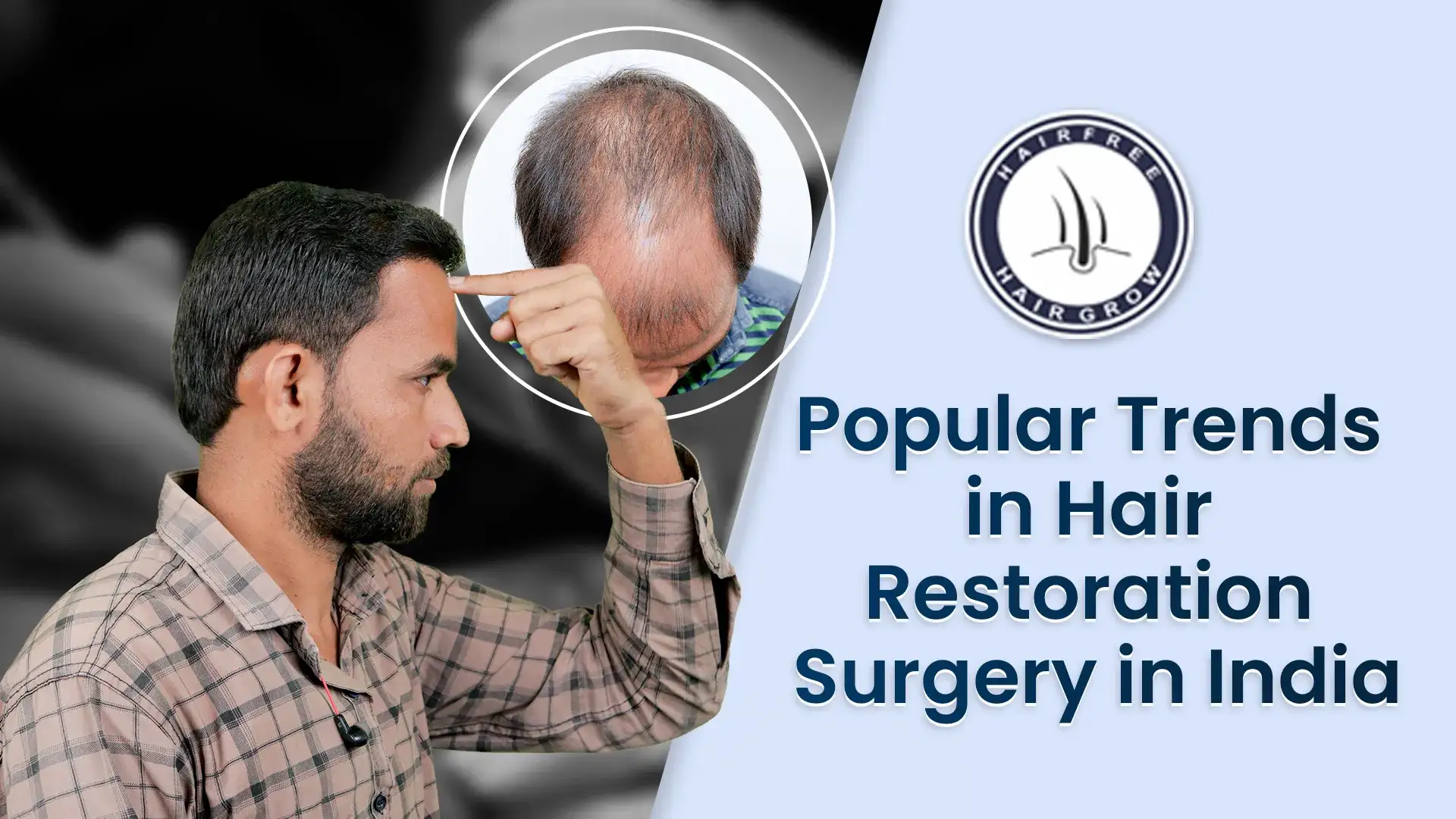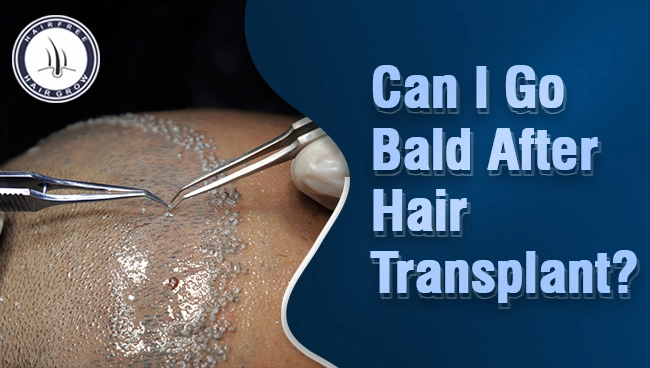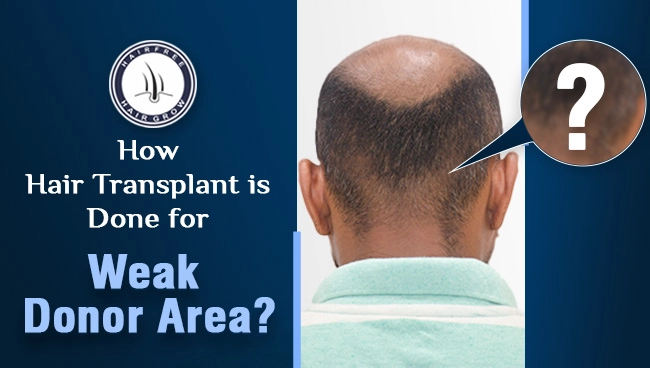Sleep and hair loss, what is connection between them?
Sleep plays a major role in the regulation of brain function, regeneration, and production of adult stem cells. So, even little disturbance to sleep can affect your body and mind in severe manner and these can occur: memory loss, mood disorders, depression, and eating disorders. Sleep deprivation is one of the major reasons and causes a higher risk of diabetes, heart disease, high blood pressure, skin problems, or weight gain. At the same time, not getting enough sleep weakens a person’s immune system.
Now many questions come to your mind, does lack of sleep cause hair loss, don’t worry here you can read everything that gives you clear information about what connection between sleep and hair loss.
Understanding the Link Between Sleep and Hair Loss
The Science Behind Hair Growth
Before we delve into the connection between sleep and hair loss, let’s first understand how hair grows. Hair growth is a complex and fascinating process that occurs in various stages. Each hair follicle on your scalp goes through stages of growth, rest, and shedding. The hair follicles require a variety of nutrients and a conducive environment to function optimally.
The Importance of Quality Sleep
Believe it or not, the quality of your sleep can significantly influence the health of your hair. During deep sleep stages, your body goes into repair and rejuvenation mode. This is when essential growth hormones, including those that promote hair growth, are released. Furthermore, adequate sleep ensures stress levels are kept in check.
How Lack of Sleep Affects Your Body
When you don’t get enough sleep, your body’s stress levels can skyrocket. Stress, as many of us know, can be a major contributor to hair loss. Elevated stress levels lead to the release of hormones like cortisol, which can disrupt the normal hair growth cycle. It can push hair follicles into the resting phase, where they are more likely to shed.
Lack of sleep also impacts the immune system, making you more susceptible to illnesses and infections. Believe it or not, your scalp’s health is closely related to your overall immune health. An unhealthy scalp can lead to poor hair quality and potential hair loss.
Additionally, improper sleep can affect your blood circulation, reducing the amount of oxygen and nutrients reaching your hair follicles. This can weaken the hair and slow down the growth process.
Striking a Balance for Healthy Hair
To maintain a luscious mane and reduce the risk of hair loss, it’s crucial to prioritize a good night’s sleep. Aim for 7-9 hours of quality sleep each night. Establish a relaxing bedtime routine, create a comfortable sleep environment, and avoid stimulants like caffeine close to bedtime.
Remember, a holistic approach to health that includes a balanced diet, regular exercise, and sufficient sleep can contribute to not only a good night’s rest but also a vibrant head of hair. So, the next time you’re tempted to stay up late, think about the impact it might have on your locks, and opt for some rejuvenating shut-eye instead.
How Lack of Sleep Can Impact Your Hair
In several Research Journals and papers in India, there have been found that there are two major impacts because of lack of sleep and how it correlates with hormonal changes and hair loss.
The human body produces the hormone melatonin. This hormone has been confirmed by researchers to regulate the sleep cycle and increase hair growth. While sleep has a direct impact on the human body’s natural hormones, it means that poor sleep reduces the amount of melatonin, potentially causing hair loss.
Lack of sleep will stress people. The psychological stress response has been shown to lead to hair loss due to telogen effluvium. The reason is that the tiredness has caused the hair follicles to fall into an early resting state, followed by a period of loss earlier than normal.
Fortunately for many people who stay up late or are ‘workaholic’, hair loss caused by lack of sleep is not permanent and can be easily reversed. Damage due to lack of sleep is not permanent now, but if we keep on ignoring it, it does turn into permanent. Lack of sleep leads to release of Cortisol, which is a stress hormone. This hormone has been associated with increasing the level of hair loss and also life-threatening diseases. But once you start sleeping enough, the cortisol levels are restored to the normal level, the body exits the survival mode and then normal bodily functions and hair growth cycle return.
The Role of Stress in Hair Loss
One of the key factors linking lack of sleep and hair health is stress. When you don’t get enough rest, your body’s stress levels can skyrocket, and this can wreak havoc on your lovely tresses. Increased stress levels can lead to hair loss, thinning, and even bald patches. So, next time you’re tempted to pull an all-nighter, think about the toll it can take on your mane!
How Sleep Deprivation and Hormonal Imbalance Cause Hair Fall
Sleep deprivation doesn’t just leave you feeling tired and groggy; it can also disrupt your hormonal balance. When you’re not getting enough sleep, your body produces higher levels of stress hormones like cortisol, which can throw off the delicate balance of your hormones. This hormonal imbalance can contribute to hair loss and reduce hair growth, leaving you with less luscious locks.
Poor Blood Circulation and Hair Health
Another way a lack of sleep affects your hair is by hindering proper blood circulation. When you’re sleep-deprived, blood flow to your scalp decreases, reducing the amount of oxygen and vital nutrients reaching your hair follicles. This can weaken the hair strands, making them more prone to breakage and thinning. So, make sure you’re catching enough to ensure proper blood circulation and keep those strands strong and healthy!
Tips for Better Sleep to Prevent Hair Loss
Having trouble falling asleep or staying asleep? Don’t worry! We’ve got some helpful tips to improve your sleep routine and keep your hair healthy and lush.
Establishing a Healthy Sleep Routine
There are some things we can change so to improve the quality of Hair and the reduction of Hair Loss:
- The best way to prevent hair loss caused by lack of sleep is to establish emotional well-being and enough sleep.
- Healthy sleep patterns require many factors from how much sleep per night to the condition of your bed and how you sleep.
- Once a proper sleep schedule is active, cortisol levels will be lowered and hair loss will slow down.
- Sleeping at the right time in night. The most optimal time is near 8 to 10 pm. So that your body is in deep sleep near 2 or 3 am and thus can produce all the major hormones and also cleanse all the organs.
- Maintain an active lifestyle with a good diet. This helps in sleeping more and deeply.
- Rest assured, assure that Rest is always there. Your body is a machine and there is an off button. Which is sleep. It recharges and rejuvenates then. Better sleep leads to better hair.
Diet and Lifestyle Changes for Improved Sleep
What you eat and how you live during the day can greatly impact your sleep quality. Aim for a balanced diet that includes foods rich in sleep-promoting nutrients like magnesium, potassium, and vitamin B6. These can be found in foods like bananas, leafy greens, whole grains, and nuts. It’s also important to limit your intake of stimulants like caffeine, especially in the evening, as they can interfere with sleep.
Regular exercise in your daily routine can also help you sleep more easily at night. However, make sure to complete your workout at least a few hours before bedtime so that your body is rested.
Stress Management Techniques
Stress is one of the main culprits behind sleepless nights and hair loss. Finding effective stress management techniques can significantly improve your sleep quality and help maintain a healthy head of hair. Consider incorporating relaxation techniques such as deep breathing exercises, meditation or yoga into your daily routine.
Taking breaks throughout the day to engage in activities such as hobbies or spending time with loved ones can also help reduce stress and promote better sleep. If stress persists and affects your daily life, consider seeking the support of a therapist or counselor. Remember, managing stress is important for both your sleep and hair health!
Other Factors Contributing to Hair Loss
Genetics and Hair Loss
Genetics can dictate how sensitive your hair follicles are to a hormone called dihydrotestosterone (DHT). DHT can shrink hair follicles over time, making it harder for hair to grow and eventually leading to thinning or balding. Understanding your family’s history of hair loss can provide insight into your potential risk and guide proactive measures.
The Influence of Diet and Nutrition
You’ve probably heard the phrase “you are what you eat,” and when it comes to your hair, this couldn’t be truer. The food you consume has a direct impact on your hair’s health and growth. Proteins, vitamins (like biotin and vitamins D and E), minerals (such as iron and zinc), and omega-3 fatty acids are essential for a flourishing mane.
Protein, for instance, is like the building block of hair. It helps in the formation of keratin, a protein that makes up your hair. A well-rounded diet with a variety of nutrients ensures your body has the tools it needs to maintain healthy hair.
Environmental Factors and Hair Health
The environment you live in can significantly affect the health of your hair. Exposure to pollutants, harsh chemicals, and excessive sun can damage your hair, making it brittle, dry, or prone to breakage.
Moreover, daily styling routines involving heat tools like straighteners or curlers, if not used cautiously, can weaken hair strands. It’s essential to strike a balance and adopt protective measures, like using heat protectants and minimizing exposure to harmful environmental elements.
Stress is another environmental factor that impacts hair health. High-stress levels can lead to hair shedding and even affect the hair growth cycle. Finding healthy coping mechanisms and stress-reducing activities can indirectly contribute to maintaining a luscious head of hair.
FAQs on Sleep and Hair Loss
1. Does Sleep Affect Hair Loss?
Yes, sleep plays a crucial role in maintaining overall health, including hair health. During sleep, the body undergoes various repair and rejuvenation processes, and this includes the hair follicles. Sufficient and quality sleep helps in promoting a healthy scalp and hair growth.
2. Can Lack of Sleep Cause Hair Fall?
Absolutely. Sleep deprivation can disrupt the body’s hormonal balance, which can lead to increased stress levels. High stress levels can contribute to hair fall and, in some cases, even hair thinning. It’s essential to prioritize a good night’s sleep to maintain healthy hair.
3. Can Excess Sleep Cause Hair Loss?
While lack of sleep can certainly impact hair health, excessive sleep is not directly linked to hair loss. However, it’s important to maintain a balanced sleep schedule for overall well-being, as extreme variations in sleep patterns can indirectly affect hair health.
4. Why Am I Always Sleepy and Losing Hair?
Chronic fatigue and constant hair loss could be attributed to several factors, including an imbalanced diet, high stress levels, hormonal changes, or underlying medical conditions. It’s advisable to consult a healthcare professional to determine the exact cause and seek appropriate treatment.
5. Will My Hair Grow if I Sleep More?
Quality sleep aids in the body’s natural healing and rejuvenating processes, which can positively impact hair growth. However, sleep alone isn’t a guarantee for significant hair growth. It needs to be coupled with a nutritious diet and a healthy lifestyle for optimal results.
6. Will Sleeping More Regrow Hair?
Enough sleep can support hair growth by promoting a healthy scalp and minimizing stress, which are essential for optimal hair health. While it may aid in regrowth indirectly, specific hair regrowth usually requires a holistic approach, including a proper hair care routine and a balanced diet.
7. Best Time to Sleep for Hair Growth
There isn’t a specific ‘best’ time to sleep for hair growth. What matters most is the duration and quality of sleep rather than the time. Aim for 7-9 hours of uninterrupted sleep each night to promote overall health, including hair health.
8. Does Sleeping Late Cause Hair Loss?
Sleeping late can disrupt your sleep cycle and affect the body’s natural processes, which may indirectly impact hair health. Consistently inadequate sleep, regardless of the time, can lead to stress and potentially contribute to hair loss.
9. Top 10 Causes of Hair Loss.
The top 10 causes of hair loss can vary from genetics (hereditary hair loss) and hormonal changes to stress, poor diet, certain medical conditions, excessive hairstyling or treatments, aging, medication side effects, autoimmune disorders, and nutritional deficiencies. Each individual’s experience with hair loss may differ.
10. Is Hair Loss from Lack of Sleep Reversible?
Yes, hair loss due to lack of sleep can often be reversible. Improving your sleep habits, managing stress, maintaining a balanced diet, and adopting a healthy lifestyle can help restore hair health and promote regrowth over time. Consistency in these practices is key to seeing positive results.
Rest assured, assure that Rest is always there. Your body is a machine and there is an off button. Which is sleep. It recharges and rejuvenates then. Better sleep leads to better hair.
For all other Hair Loss causes visit Hairfree Hair Grow Clinics in more than 18 cities. No matter you are from Surat, Hyderabad, Bhopal, Gurugram, Ahmedabad, Kolkata, or Mumbai , you will always have Hair Free Hair Grow with you!
Leave the rest, Grow Hair with the BEST! – Hairfree & Hairgrow Clinic

